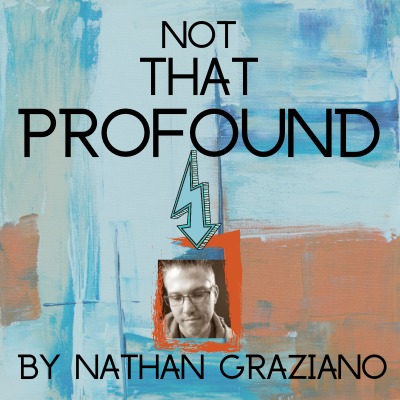

There’s a shot in Craig Hanson’s 2000 film “Wonder Boys”[1] that perfectly captures all of the pretentiousness of the literary community in roughly 10 seconds.
The film[2] follows Grady Tripp (Michael Douglas), a Pittsburgh college professor struggling with writer’s block, during a weekend of mayhem. Professor Tripp then takes James Leer (Tobey Maguire), a strange undergrad student and a writing prodigy under his wing and introduces him to his eccentric editor, Terry Crabtree (Robert Downey Jr.), who is visiting in order to catch a glimpse of Tripp’s new novel, the follow up to his award-winning first book.
In the aforementioned shot, Rip Torn plays Quentin “Q” Morewood, an acclaimed novelist brought to campus that weekend for WordFest—a campus-wide literary celebration—where everyone in the English Department can fawn over him for a few days. When delivering his lecture/reading to an auditorium stuffed thick with literary sycophants, Q—donning the obligatory writer’s blazer—slowly scans the audience from his podium.
“I…am a writer,” Q says to the audience, who burst into adorning applause.
And there you have it: This is the self-importance of a pompous literary community in a nutshell[3].
Recently, I had a discussion with a friend who had noticed that the majority of my writing these days was journalistic, as opposed to “literary.” They were wondering if I was still working on fiction or poetry.
I told them I had a couple of projects in chute right now, while putting my head down and avoiding eye contact. I later realized that this gesture was a hangover from my former life as a writer, the one where the only “real” writing pursuits were literary, and “real” literary writers only worked in journalism for a paycheck while waiting for the literary world to notice them.
When I started in the teaching profession, I felt this way about teaching high school as well. It was only a job to pay my bills until I assumed my rightful throne as the next great American novelist[4].
In 2002, my first collection of short fiction, “Frostbite,” was published in hardcover by a small press in New York City. That was supposed to be followed by a coronation.
That never happened.
The book sold miserably—largely due to the fact that it was miserably written—so my ascension to fame would have to wait. Also, at this same time, I started writing nonfiction pieces for newspapers, something I considered only as a means of earning diaper money for my young family.
That, of course, was bullshit.
In 2004, I enrolled in the MFA program at The University of New Hampshire, an experience that was largely positive and—more importantly—humbling. It was there, in writing workshops with some brilliant writers, that it realized I wasn’t nearly as good as I thought.
And that was the truth.
Still, I saw a fair share of Qs come through campus and held on to the hope that I might someday become a “Q,” too. After finishing my MFA program, I signed with a literary agent who represented the novel that was my master’s thesis. And while some editors in the big New York City publishing houses were impressed, ultimately the manuscript never sold.
So I wrote another novel. Rinse and repeat.
Meanwhile, I continued publishing books of poetry and fiction through small presses, books that barely made a ripple in the literary world[5] but meant something to me.
Then, in 2012, I began writing a Red Sox column for a small weekly in Boston titled Dirty Water News, and the rest has led me here.
And here is the thing that has finally dawned on me: These pieces that I write now for Manchester Ink Link, or any other freelance assignments I take on, are not—by any stretch of the imagination—less than my “literary” pursuits.
Recently, I’ve found more fulfillment writing about local musicians and artists than I ever did handwriting fiction or poetry. And maybe this is a microcosm for a larger philosophical point, but that’s not for me to decide.
Hemingway—despite being a repugnant human being—captured writing best with a simple, pithy statement: “Writer’s write.”
Notice there is no first-person pronoun there.
And for anyone wishing to become a writer that’s where you need to start. No one is going to lovingly run their finger over your byline and titter; no one cares how cool you look in your bio photo or how many awards are attached to your name; and—in a climate where Tik-Tok makes you famous—nobody cares about your book. It’s not about you. It’s about the words.
Writer’s write. That’s it.
[1] It goes without saying that Michael Chabon’s novel, which was adapted by Steve Kloves, is vastly more satisfying, although the film is quite good (until the last scene). Of the many writers who have tried to capture academia’s milieu through fiction, this is one of the few worth reading. The other is Richard Russo’s “Straight Man.”
[2] It should also be noted that Katie Holmes’ role in the film resulted in a 75 percent increase in applications to MFA programs in writing nationwide.
[3] This, by the way, is not an indictment of the entire literary community. I have met many kind and unselfish writers and writing teachers in my career; however, this subset of insufferable snobs seems to capture a lot of attention.
[4] I wish I could hop in a time machine and bitch-slap the supercilious twit I was back then.
[5] One of my books of poems, “Teaching Metaphors” (Sunnyoutside, 2007) received a fair amount of praise and press, but it is also one of my least favorites of the books I’ve published.







